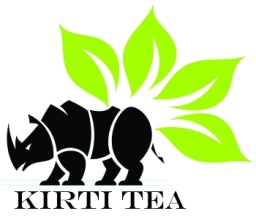Assam Tea, CTC Tea, Orthodox Tea, Tea
Assam Tea – A Global Drink
In the midst of our stressful days, we all crave a cup of tea. It doesn’t matter what line of profession you are in; all you need to unwind is a cup of tea and you instantly feel refreshed after.
No matter what time it is, tea saves us from boring and exhausting office work to having friendly gossip. For us, tea is merely a magical beverage.
Assam is the origin of tea in India. It produces almost half of the nation’s tea that we consume.
Today, we’ve handpicked a few details of Assam tea that every tea lover should read at least once in their lifetime. Let’s go through the origin and significance of Assam tea in this blog.
History
It is considered that Assamese natives once planted those plants and produced tea for their use. Back then, it wasn’t exported outside. Robert Bruce, a Scottish explorer, found tea plants growing naturally in the hills of Rangpur, Assam, in 1823 while on a trading expedition. Bruce observed that the Singpho tribes make a refreshing, aromatic beverage by brewing some leaves. The tea samples were then dispatched to the Botanical Garden of Kolkata (earlier Calcutta) for further identification.
Upon identification, it was reported that the tea leaves are of Camellia sinensis, which is similar to the tea plant found in China. The British initially believed that Assam tea would differ significantly from tea from China, however, that is untrue. Later, Assam tea was transported to London and other locations throughout the globe. Assam’s tea industry expanded quickly and by the year 1862, there were almost 160 tea gardens there.
Variations of Assam Tea
The climate of Assam is the perfect weather for tea production. Due to its high caffeine level and vibrant colour, it is the ideal morning tea and a substitute for coffee. It is interesting to note that the tea gardens of Assam do not follow the IST time zone because the Sun rises earlier in the area and the British were aware of this. The gardens observe “Bagan Time” or “Tea Garden Time,” which is one hour earlier than the regular IST.
There are two kinds of Assam Tea: Orthodox tea & CTC tea (named after the manufacturing process).
While CTC (Crush, Tear, and Curl) is a method of processing black tea in which tea leaves are passed through a series of cylindrical rollers with serrated blades that crush, tear, and curl the tea into small, even-shaped pellets, Orthodox tea is loose leaf tea produced using traditional techniques, that include plucking, withering, rolling, oxidation/fermentation, and drying.
The CTC tea manufacturing process is a quicker approach to producing a standard quality of tea while orthodox tea makers use traditional means during their tea production process, which can be time-consuming and involve a lot of human intervention.
The Importance of Assam Tea
India’s largest tea research centre managed by the Tea Research Association is located in Jorhat, Assam. Currently, Assam produces 13% of the world’s tea, or roughly 570 million kg, from its around 800 tea gardens each year. To better understand the importance of Assam tea, let’s look into the following factors:
> After China, Assam’s tea production makes India, the second-largest tea-producing country. The majority of the Assam tea is shipped to foreign nations including Iran, the UAE, the UK, and the USA.
> The native Camellia sinensis tea shrub grows only in Assam.
> Tea gardens cover a good amount of land in Assam, employing thousands of people.
Health Benefits of Assam
Assam tea not only offers good quality commercial benefits, but it also provides some health benefits. Assam tea is often marketed as a breakfast tea due to its naturally high caffeine content. Assam tea may provide the following health benefits:
> It may prevent several diseases since it is rich in antioxidants like theaflavins, thearubigins, and catechins.
> Polyphenolic compounds (present in Assam Tea) also reduce cholesterol levels and help prevent blood vessel build-up, which promotes heart health.
> It is said to be a promoter of brain health.
Although more research is needed to determine the exact scientific explanation for Assam tea’s ability to cure disease or promote better health.
The Bottom Line
Without a doubt, Assam tea is one of the finest morning tea that enhances the mood.
Assam tea is considered to be a premium quality tea because of its vibrancy in colour and the strong aroma it produces. Tea production involves a lot of manual labour and machinery, followed by the packing of fine tea leaves to give a burst of rehydration. We all value the effort put out by the workers who work so hard to make our mornings refreshing.
( Sourced:thecriticalscript.com)

